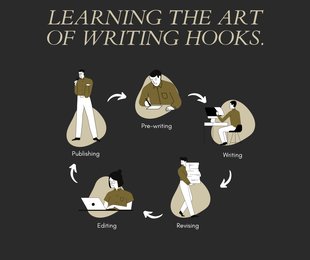Mastering GCSE Success: A Comprehensive Guide to CCEA GCSE English Language
For students following the Northern Irish curriculum, Council for the Curriculum, Examinations & Assessment (CCEA) provides the GCSE English Language qualification — a course designed to build strong reading, writing, speaking, and listening skills. This qualification is not just about memorising texts or grammar rules; it aims to help learners respond creatively and critically to a wide range of texts — from media and non-fiction to literary and imaginative writing — and to communicate effectively in written and spoken form.
If you’re preparing for the exam, one of the best tools you can use is authentic past exam material. In this guide, we’ll explore how to use gcse ccea english language past papers effectively, how the exam is structured, and strategies to maximize your performance.
Understanding the Structure of CCEA GCSE English Language
The current specification (first taught from 2017, first assessed in 2018) divides English Language into four key units.
-
Unit 1: Writing for Purpose and Audience & Reading Non‑fiction / Media Texts
This exam paper has two sections: one writing task (for a given audience and purpose) and multiple reading tasks based on non-fiction or media texts. Students are assessed on their ability to write accurately and effectively, choose vocabulary purposefully, and analyse language and structure when reading. -
Unit 2: Speaking and Listening
This unit assesses spoken language skills via controlled tasks: individual presentations, group discussions, and role‑plays. It focuses on clarity, adaptability of language, structure of talk, and interactive skills. -
Unit 3: Studying Spoken and Written Language
This unit examines understanding of how language works — exploring meaning, linguistic choices, variation in spoken/written forms, and how context influences language use. -
Unit 4: Personal or Creative Writing & Reading Literary / Non-Fiction Texts
Here, students engage with creative or personal writing tasks plus reading of literary or non‑fiction texts. The aim is to demonstrate imaginative writing and analytical reading skills.
This modular (unitised) approach means that only a portion of the assessment needs to be taken at the end of the full course — giving flexibility in when and how units are completed.
The Value of Past Papers in Preparation
Incorporating gcse ccea english language past papers into your revision strategy is among the most effective ways to prepare — here’s why:
1. Familiarity with Exam Format and Question Types
Past papers allow you to experience exactly how questions are framed: writing prompts, reading comprehension tasks, language analysis questions, creative writing tasks, etc. This familiarity reduces surprises on exam day and helps you manage time and plan responses more effectively.
2. Practice Under Realistic Conditions
By timing yourself and simulating exam conditions — no distractions, with only allowed materials — you train yourself to work steadily under pressure. This improves not just knowledge, but exam‑taking stamina and time management.
3. Understanding Examiner Expectations via Mark Schemes
When using past papers, make sure to review the official mark schemes. These show what examiners look for: clarity of expression, accurate grammar/punctuation, relevant vocabulary, strong structure, well‑supported analysis or creative ideas, and effective use of language features. Comparing your answers with these helps you learn how to meet top grade criteria. Many past papers and mark schemes for CCEA are available for download.
4. Identify Weak Areas and Focus Revision
As you work through different papers — e.g., reading tasks, creative writing, analysis — you may notice recurring challenges: perhaps you struggle with time pressure, or with analysing language structure, or planning creative writing. Past papers highlight those weak spots so you can focus your revision more effectively.
5. Build Confidence and Reduce Exam Anxiety
Repeated exposure to past papers builds confidence. Knowing the format, practicing timed essay writing, and getting comfortable with language analysis helps reduce anxiety and increases clarity and composure on exam day.
How to Use CCEA Past Papers Effectively — A Step‑by‑Step Plan
Here’s a recommended process to get the most out of past papers:
Phase 1: Foundation — Build Knowledge
-
Read widely: non-fiction articles, media texts, literary texts, essays — to strengthen comprehension and vocabulary.
-
Revise grammar, punctuation, sentence structures — a firm grasp on basics supports clarity in writing.
-
Practice writing: short paragraphs, summarizing articles, describing scenes, building familiarity with different writing forms (formal letters, articles, creative stories, descriptive pieces).
Phase 2: Controlled Past Paper Practice
-
Choose a past paper (Unit 1 or Unit 4) and treat it like a real exam: time yourself, remove distractions, abide by exam rules.
-
Write full responses — don’t skip parts. For reading tasks, answer all questions. For writing tasks, plan first (brainstorm, outline) then write.
-
After finishing, review using the mark scheme. Mark yourself or — better — ask a teacher/peer to mark, paying attention to strengths and weaknesses.
Phase 3: Review and Reflect
-
Analyse mistakes: Did you misinterpret the question? Did time run out? Was vocabulary or grammar weak? Was your structure poor?
-
Rewrite answers if needed — especially writing tasks. Try to improve clarity, structure, and language.
-
Maintain a revision journal/log: record which past papers you did, what you found difficult, and progress over time.
Phase 4: Rotate and Broaden Practice
-
Don’t just stick to one unit. Rotate between reading comprehension, media analysis, creative writing, personal writing, language analysis, speaking tasks (practise outside).
-
Use unseen texts to diversify skills: practising on unfamiliar materials enhances adaptability.
-
Combine past paper work with other revision methods: vocabulary building, reading contemporary articles, practising speaking and listening with peers or tutors, timed summaries, etc.
Overcoming Common Challenges with Past Papers
Using past papers is great — but there are common pitfalls. Here’s how to avoid them:
- Misreading or misinterpreting questions
Always read carefully and underline key words (e.g. “describe,” “analyse,” “compare,” “persuade”). Planning before writing helps ensure you answer the actual question.
- Leaning on plot summary (for texts) instead of analysis
For reading or literature-based writing tasks, avoid simply summarizing. Instead, focus on how and why language, structure, tone, and style produce meaning or impact.
- Ignoring structure or lack of planning
A well-structured response — with clear introduction, logically sequenced paragraphs, and conclusion — demonstrates control and organisation.
- Poor time management
Earlier practise helps. Break down timing: how much for planning, writing, proofreading. Use timed sessions to improve pacing.
- Weak language, grammar, punctuation
Regular practice, reading widely, and reviewing past feedback or model answers will help you spot mistakes and improve clarity.
Complementing Past Papers: Broader Study Strategies
Past papers are powerful — but they work best when combined with complementary study techniques:
-
Reading widely: newspapers, media articles, essays, stories — helps you understand different writing styles and contexts.
-
Writing regularly: maintain a journal, blog, short stories, or essays on various topics to build fluency and comfort with writing.
-
Peer review or tutor feedback: external feedback helps you notice mistakes or weaknesses you might miss.
-
Timed summaries & précis writing: summarising longer texts helps practise comprehension and accuracy.
-
Vocabulary & grammar work: keep learning new words, idioms, structures — language variety and precision matter.
-
Speaking & listening practice: debate, discussion, presentations — especially helpful for Unit 2 but also builds overall communication skills.
Putting It All Together — Sample Revision Plan (12 Weeks)
| Week | Focus |
|---|---|
| 1–2 | Foundations: grammar review; reading non‑fiction & media articles; vocabulary building. |
| 3 | Past Paper: Unit 1 — reading tasks (non‑fiction/media) under timed conditions. Review with mark scheme. |
| 4 | Writing practice: descriptive, personal writing, letter writing. Focus on structure, tone. |
| 5 | Past Paper: Unit 4 — creative/personal writing + reading literary/non‑fiction texts. Review and self‑assess. |
| 6 | Language analysis practice: practise analysing unseen short texts, focus on language/structure. |
| 7 | Past Paper: alternate paper (Unit 1 or Unit 4), timed writing and reading. Peer or tutor feedback. |
| 8 | Speaking & listening practice (Unit 2): prepare short presentation; practise discussion/role‑play with peer or tutor. |
| 9 | Reading widely: articles, essays, opinion pieces — practice summarising & analysing. |
| 10 | Past Paper: full mock — reading + writing under exam conditions. Review with mark scheme; rewrite improved answers. |
| 11 | Focus on weak areas identified: e.g. punctuation, writing under time constraints, language analysis, structure. |
| 12 | Final revision: vocabulary review, quick past‑paper drills, simulated exam timing, confidence building. |
Conclusion: Making Past Papers Your Core Tool for Success
If you’re preparing for GCSE English with CCEA, using real exam material is not optional — it’s essential. By including gcse ccea english language past papers in your revision strategy, you gain insight into the exam format, practise under realistic conditions, understand what examiners expect, and build confidence.
When combined with broader reading, writing, speaking practice, grammar and vocabulary work, and timed drills, past papers transform raw knowledge into exam‑ready skill. They help you identify weaknesses, refine strengths, and optimise time management.
In short: success in CCEA English Language isn’t just about knowing texts or grammar — it’s about applying that knowledge under pressure, communicating clearly, analysing with insight, and structuring responses with precision. With consistent, thoughtful use of past papers as the backbone of your preparation, you give yourself the best possible chance to excel.





































